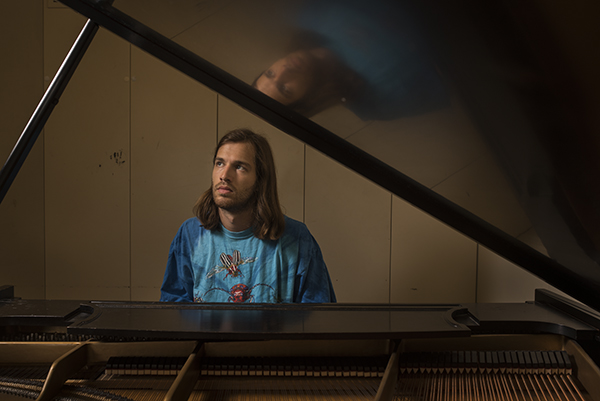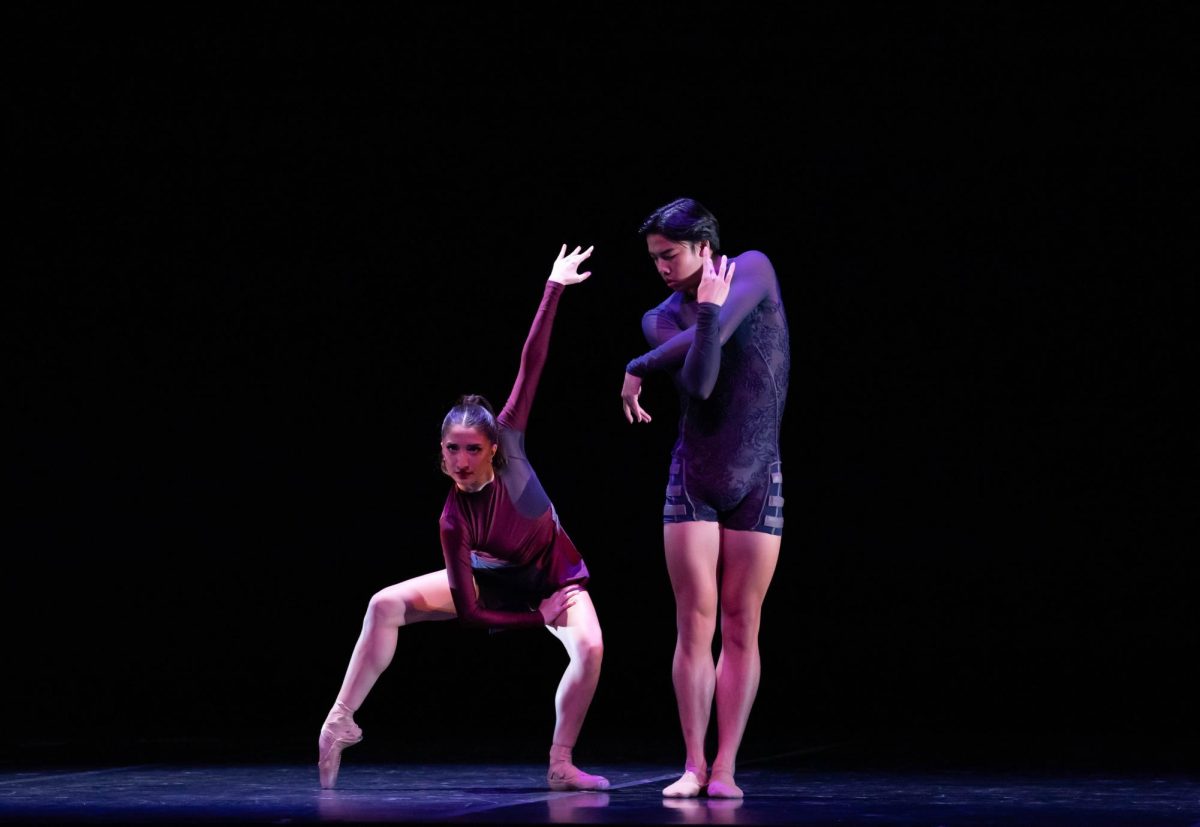Kevin Johnson spends half of his day copywriting for UT professor Stelios Kyriakides’ engineering publication. During the other half, he is Lonesome Rhodes, using pen and paper to write music that dabbles between the worlds of melancholy and glee.
Johnson is a UT rhetoric and advertising alumnus (2017) whose indie dream-pop band’s music was mostly written with a Fender
Rhodes keyboard.
“It’s my dream,” Johnson said. “I’m going after it full steam. I got to a place where I really wanted to be writing my own stuff.”
Johnson said he draws from his memories for most of his songwriting.
“We remember things differently from how they happened,” Johnson said. “(Memories) are all exaggerated. It’s that hyperbolic nature that intrigues me
the most.”
Lonesome Rhodes released his latest album Phantom Palace in April 2019. His lead single “Bugs” has almost reached 100,000 listens on Spotify. Johnson said he credits his growth over the past three years to his passion.
Lonesome Rhodes drummer Chris Backus met Johnson in a UT writing class in 2017. Shortly after meeting each other, they began sharing music and started creating their own work.
“Our ears are on the same wavelength,” Backus said. “You’ve got a kid who’s able to say anything musically that he wants.”
Johnson wrote most of his songs in his room. Physically, Johnson was at home, jamming on his keyboard and drums, but mentally, he said he’s driving down the road in his car or thinking about
a relationship.
Johnson said putting music to his experiences gives him more emotional clarity. He said he hopes his listeners take his music and experience a spectrum of emotions as opposed to one “happy” or
“sad” song.
Nutrition sophomore Quyen Dinh is an ambassador for Sofar Sounds Austin. She discovered Johnson’s music on Spotify and immediately decided to see him perform live.
“The first time I saw Kevin, I was only able to catch the last two lines of ‘Bugs,’” Dinh said. “After hearing that, the song was stuck in my head for the remainder of the night.”
Dinh said after his performance, she knew he sounded just as good live as he did in a studio and made a point to book him for one of the Sofar Sound events.
“His music was able to fill the entire space and captivate the entire audience,” Dinh said. “I see it as him dancing on the line between ‘sad’ and ‘happy,’ entangling the two and somehow finding a way to showcase their duality through audible sound.”















